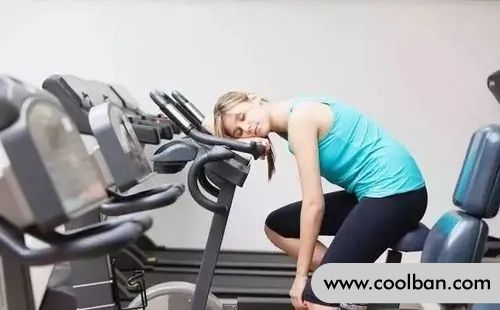Can I eat after exercise?
In the process of losing fat, diet and exercise are almost unavoidable topics. To put it simply, diet control is the premise of fat loss, and adherence to exercise is an aid to diet and an effective means to increase daily calorie consumption. It is precisely because of this that we basically recommend that you achieve the goal of losing fat through diet + exercise.
However, at this time, a question arises, that is, should I eat after exercise? Does Eating After a Workout Make Your Workout Worthless and Invalidate Your Effort?

First: The core of fat loss
If you want to lose fat effectively, it is not as simple as controlling your diet and increasing exercise. To a certain extent, eating less is a subjective factor. Simply eating less does not mean that daily energy intake can be controlled. The key is to see if you are controlling calories when you eat less; while exercise is a means of increasing your daily caloric expenditure, an increase in exercise volume does not mean an increase in caloric expenditure throughout the day, because you can reduce the amount of daily activity by exercising , so as to offset the consumption caused by exercise.
Therefore, in the process of losing fat, what we mean by controlling diet and exercise should refer to the following two aspects:
What you need to control your diet is your total calorie intake throughout the day, not simply eating less. Of course, from this point of view, as long as your calorie intake can be controlled throughout the day, it doesn't matter when you eat or how many times a day you eat.
Exercise is an effective way to increase consumption. However, from the perspective of activity metabolism, non-exercise consumption is also included. Non-exercise consumption is still very important, so even if you insist on active exercise, you must ensure the amount of daily activity.
When you control your calorie intake throughout the day, you can increase some of your consumption through active exercise without affecting non-exercise consumption, then the formation of a calorie deficit becomes possible.

Second: Do you want to eat after exercise?
1. Over-reliance on the fat-reducing effect of exercise and neglect of diet
Some friends will pay special attention to the effect of exercise on fat loss, and will think that as long as you exercise, you can lose weight. In this case, it is easy to have a compensatory psychology after exercise, and you can treat yourself through diet. Of course, from the results, this approach has little chance of losing fat, because the consumption of exercise is not as much as we think, and it is easily offset by poor eating habits.
2. Understand the importance of diet, so soon after exercise
There are also some friends who will emphasize the importance of diet when exercising. Of course, this is not wrong. However, in order to prevent exercise in vain, they will strictly fast after exercise. The reason is more reasonable, that is, if you don't eat after exercise, your body's energy will not be replenished. In this case, the rate of fat breakdown will be accelerated, but it will be overlooked that at the same time as fat is broken down, muscle and protein are broken down faster. Therefore, strict fasting after exercise increases the risk of muscle loss.

Third: How to eat after exercise is a must
The first thing to know is that in the process of losing fat, we need to consider the intake of calories throughout the day, that is, as long as the intake of calories throughout the day is controlled, it doesn’t matter when to eat. Under the premise of a day's calories, a reasonable diet after exercise will not affect your fat loss efficiency.
However, many friends worry that eating after exercise will lead to waste of exercise, and they will be more persistent if they endure not to eat, because when they complete their exercise goals, they will get a good psychological experience. This good psychological experience will help us better control our diet and look forward to the next exercise, so they can tolerate the hunger after exercise relatively well.
But this approach is not advisable, because in the process of controlling diet and insisting on exercising, the body itself will be under relatively great pressure, and hunger will appear about 30 minutes after exercise, and if it is resistant to eating, it will lead to further stress levels. Increased, increased stress levels can cause cortisol levels to rise, which can make it difficult to break down fat and further stimulate the desire to eat, leading to uncontrollable.
Post-exercise eating behavior can be ignored as long as caloric intake is controlled throughout the day. Again, fat loss depends on the relationship between calorie intake and consumption throughout the day, so as long as you can control your calorie intake throughout the day, it doesn't matter when you eat.
Eating after exercise is more conducive to creating a favorable metabolic environment for muscle synthesis, thereby reducing the risk of muscle loss. Of course, to achieve this, food choices should be dominated by carbohydrates and proteins. At this time, the carbohydrate intake can account for about half of the daily carbohydrate intake, and the protein intake can be about 1/3 of the protein intake throughout the day.
Consider exercise intensity. If you insist on high-intensity exercise, you can consider eating most of the calories throughout the day after exercise, which is more conducive to physical recovery, stress regulation, and of course muscle synthesis.
